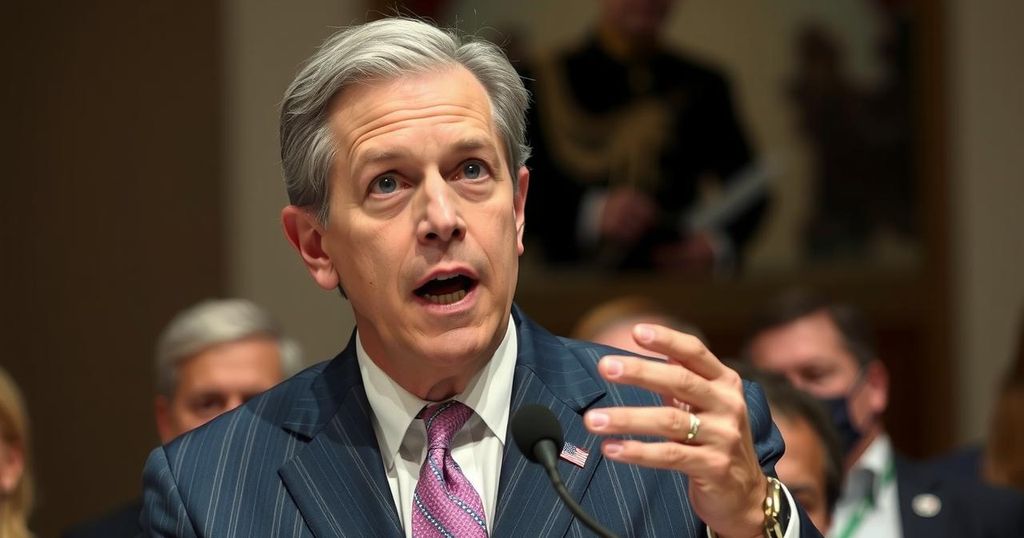During his testimony, Secretary Antony Blinken faced GOP criticisms regarding the withdrawal from Afghanistan, characterized as a foreign policy failure. He defended the Biden administration’s decisions amid disruptions and protests, emphasizing the reliance on agreements made by former President Trump. The debate reflects ongoing political tensions regarding accountability in the context of U.S. military policy in Afghanistan.
Secretary of State Antony Blinken appeared before the House Foreign Affairs Committee to address criticisms regarding the U.S. withdrawal from Afghanistan, which has been characterized by some as a catastrophic failure of foreign policy. Republican Representative Michael McCaul criticized the Biden administration’s approach, stating that the withdrawal “lit the world on fire” and expressing a desire for Blinken to take accountability for the handling of the situation. Throughout his testimony, Blinken reaffirmed the administration’s perspective that the withdrawal was the least detrimental option available, given the circumstances established by former President Donald Trump’s agreement with the Taliban.
In response to protesters in the audience, Blinken began by extending his condolences to families of U.S. forces who lost their lives during the withdrawal. He reiterated that, according to the agreements in place, President Biden was faced with a binary choice: either proceed with the withdrawal or escalate military conflict. Blinken underscored the point that the decision was not simply a reflection of mismanagement by the current administration, but a culmination of policy decisions across multiple administrations.
The backdrop of Blinken’s testimony derives from a broader investigation by House Republicans that has scrutinized the final hours of America’s military engagement in Afghanistan. The investigation attributed significant failures to the Biden administration while glossing over Trump’s contributions, the very agreement that precipitated the hurried exit created a complex and challenging landscape for decision-making. Hence, the discourse surrounding this issue highlights the shared accountability among leaders of both political parties in shaping U.S. foreign policy in Afghanistan.
The U.S. withdrawal from Afghanistan, executed in August 2021, marked the end of a nearly twenty-year military involvement in the country. The withdrawal was overshadowed by chaos, with the Taliban quickly reclaiming control over Afghanistan as American forces departed. Critics argue that the withdrawal plan was flawed, leaving behind Afghan allies and vulnerable populations, particularly women, to face potential retribution from the Taliban. Former President Donald Trump negotiated a peace agreement with the Taliban in February 2020, which set the stage for the exit, but many have pointed to failures and miscalculations across successive administrations, complicating the accountability narrative.
In conclusion, Secretary Antony Blinken’s testimony before Congress underscores the ongoing debate surrounding the U.S. withdrawal from Afghanistan. His defense of the Biden administration’s actions frames the withdrawal as a necessary conclusion to a prolonged conflict, while critics from the GOP emphasize accountability for what they label a debacle. As investigations continue, it remains evident that the circumstances leading to the tumultuous exit involve shared responsibility across multiple administrations, reflecting deep-rooted challenges in U.S. foreign policy.
Original Source: www.news-herald.com






